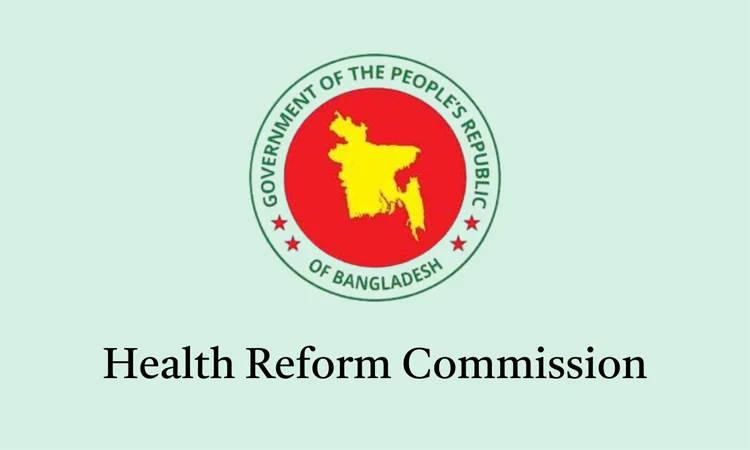
DHAKA, May 6, 2025 (BSS) – The Health Sector Reform Commission has proposed recognising primary healthcare as the fundamental rights of citizens’ through amendment to the Constitution.
The commission made the recommendation in its reports submitted to Chief Advisor Professor Dr Muhammad Yunus at the State Guest House Jamuna on Monday.
In the report, the commission stated that healthcare is the basic right for all.
“Primary healthcare should be recognized as the fundamental rights through amendment to the Constitution. To implement this constitutional commitment, a separate 'Primary Healthcare Act' should be enacted, which would define the rights of citizens and the duties of the state regarding access to free primary healthcare, and ensure long-term fairness and accountability in the health sector,” the commission suggested.
In the beginning of the report, the commission said, “This reform report is dedicated to the memories of the martyrs of the great Liberation War of 1971 and July-August (uprising) 2024. May this health sector reform proposal help materialize their dreams of establishing a just society free from discrimination”.
In the preamble of the report, the commission stated that despite Bangladesh's significant progress in the primary healthcare sector in the decades after the independence, Bangladesh lags far behind in achieving the Sustainable Development Goals (SDGs) and universal health coverage.
With the approval of the Chief Advisor to the Interim Government, a commission called the 'Health Sector Reform Commission' was formed with the aim of proposing necessary reforms to make healthcare more people-oriented, accessible and universal.
A gazette notification was published on November 18 last year in this regard.
National Professor and Diabetic Association of Bangladesh (BADAS) President Dr AK Azad Khan was made the chief of the commission.
Other members of the commission included - Professor Dr Abu Muhammad Zakir Hossain, president of Community Clinic Health Assistance Trust (CCHST); Professor Dr Liaquat Ali, chairman of Pothikrit Foundation; Professor Dr Sayera Akther, a gynecologist; Professor Dr Naila Zaman Khan, a neurologist, the Department of Pediatric Neuroscience; MM Reza, former secretary; Professor Dr Muzaherul Huq, former regional adviser (South-East Asia Region) at the WHO; Dr Azharul Islam, ICDDR,B consultant; Professor Dr Syed Md Akram Hossain, Square Cancer Centre, Square Hospital; Professor Dr Syed Atiqul Haque, chief consultant of Green Life Centre for Rheumatic Care and Research; Dr Ahmed Ahsanur Rahman, scientist at ICDDR,B; and Omair Afif, a student of Dhaka Medical College.
The Health Services Division of the Health and Family Welfare Ministry has provided secretarial support to the commission.
The factors that the commission has taken into consideration in formulating its recommendations are the proposed period for implementing the recommendations, what needs to be done during the term of the interim government, what needs to be done during the term of the next elected government, and national expectations and commitments.
The commission members attended 51 regular meetings and organized 32 consultation meetings in a bid to prepare the report and recommendations.
The consultation meetings were held in Chattogram, Rangamati, Khulna, Sylhet, Rajshahi, Rangpur, Barisal, Munshiganj and Dhaka. Advice and cooperation from experienced individuals, relevant professionals and expert organizations were taken during preparing the report.